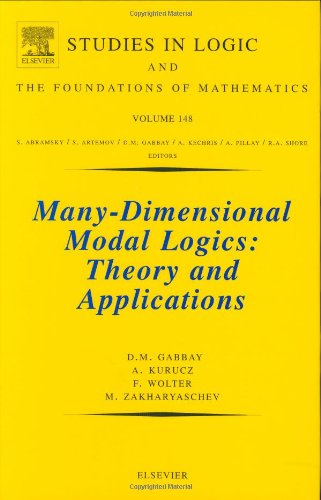

Most ebook files are in PDF format, so you can easily read them using various software such as Foxit Reader or directly on the Google Chrome browser.
Some ebook files are released by publishers in other formats such as .awz, .mobi, .epub, .fb2, etc. You may need to install specific software to read these formats on mobile/PC, such as Calibre.
Please read the tutorial at this link: https://ebookbell.com/faq
We offer FREE conversion to the popular formats you request; however, this may take some time. Therefore, right after payment, please email us, and we will try to provide the service as quickly as possible.
For some exceptional file formats or broken links (if any), please refrain from opening any disputes. Instead, email us first, and we will try to assist within a maximum of 6 hours.
EbookBell Team

4.1
20 reviewsTo study the computational behaviour of many-dimensional modal logics is the main aim of this book. On the one hand, it is concerned with providing a solid mathematical foundation for this discipline, while on the other hand, it shows that many seemingly different applied many-dimensional systems (e.g., multi-agent systems, description logics with epistemic, temporal and dynamic operators, spatio-temporal logics, etc.) fit in perfectly with this theoretical framework, and so their computational behaviour can be analyzed using the developed machinery.
We start with concrete examples of applied one- and many-dimensional modal logics such as temporal, epistemic, dynamic, description, spatial logics, and various combinations of these. Then we develop a mathematical theory for handling a spectrum of 'abstract' combinations of modal logics - fusions and products of modal logics, fragments of first-order modal and temporal logics - focusing on three major problems: decidability, axiomatizability, and computational complexity. Besides the standard methods of modal logic, the technical toolkit includes the method of quasimodels, mosaics, tilings, reductions to monadic second-order logic, algebraic logic techniques. Finally, we apply the developed machinery and obtained results to three case studies from the field of knowledge representation and reasoning: temporal epistemic logics for reasoning about multi-agent systems, modalized description logics for dynamic ontologies, and spatio-temporal logics.
The genre of the book can be defined as a research monograph. It brings the reader to the front line of current research in the field by showing both recent achievements and directions of future investigations (in particular, multiple open problems). On the other hand, well-known results from modal and first-order logic are formulated without proofs and supplied with references to accessible sources.
The intended audience of this book is logicians as well as those researchers who use logic in computer science and artificial intelligence. More specific application areas are, e.g., knowledge representation and reasoning, in particular, terminological, temporal and spatial reasoning, or reasoning about agents. And we also believe that researchers from certain other disciplines, say, temporal and spatial databases or geographical information systems, will benefit from this book as well.